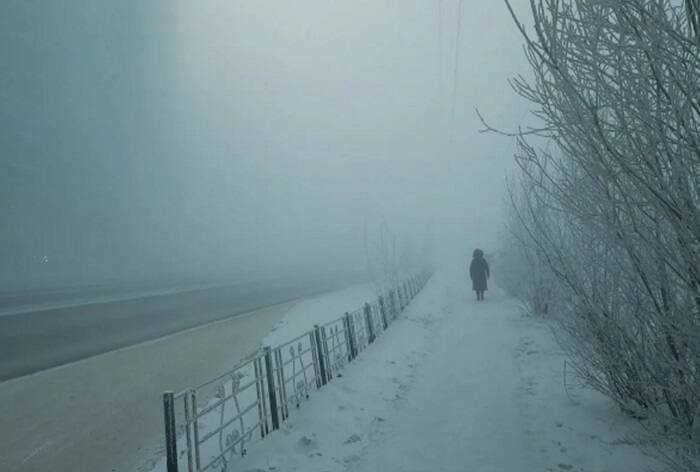
[ad_1]
The drone footage captures the essence of this extraordinary work and despite the grueling nature of their work, the workers maintain a positive outlook, believing that perspective is key.

The process of ‘vymorozka,’ which roughly translates as ‘freezing out,’ refers to the weeks-long tedious work by Siberian shipyard workers to maintain the hulking vessels in temperatures dropping to -50°C. Workers chip away at the ice encasing the ships, looking for areas in need of repair. The task is often called one of the hardest jobs in the world.
The shipyard is located in the harbour of Yakutsk, a city situated on the banks of the Lena River. In summer, this river serves as Siberia’s economic lifeblood, but during the winter months, it transforms into a frozen expanse that challenges even the most resilient individuals. Yakutia, Russia’s largest republic by landmass, is home to this shipyard.
The drone footage captures the essence of this extraordinary work and despite the grueling nature of their work, the workers maintain a positive outlook, believing that perspective is key.
“You dress the right way and that’s it. When you come (to a heated building) and get undressed, it’s like a sauna, steam rises from you,” worker Mikhail Klus, 48, told Reuters as he took a break from cutting through the ice with a chainsaw.
“I don’t think it’s the hardest job – there are jobs even harder than that, but it’s probably one of the hardest jobs…One needs to try to understand, needs to love the cold and working in it.”
The labourers must be sure not to cut the ice too quickly and break through to the water below. If they do, the carved dugout can be submerged and the work is lost.
The colder the weather, the better the ice freezes and the smoother the job, although the temperatures are hard on some workers. “Sometimes, when you freeze, you feel negative emotions from it,” 22-year-old Artyom Kovalec said from under a thick layer of coats, a pickaxe in his mittened hands to Reuters.
“You feel it’s too cold to work, you want to go home, to eat and relax, so you have to get a grip on yourself.”
(With inputs from Reuters)
[ad_2]